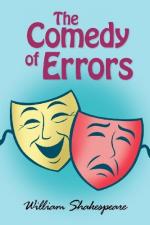|
This section contains 2,982 words (approx. 8 pages at 400 words per page) |

|
Many critics note the binary pairing of Antipholus of Syracuse and Antipholus of Ephesus, as they do with other obvious combinations (the Dromios, Adriana and Luciana, Aegeon and Aemilia). Catherine M. Shaw argues that the differences in their personalities and their relationships with women (Luciana and Adriana, respectively), "provide the distinction in tone between the high and middle comedy of the play." William C. Carroll notes that the" doubling" they experience through the confusion over their identities is largely a result of their conversations with other characters, particularly the Dromios, Adriana, and Luciana. Their language is transformed, just as they are.
W. Thomas MacCary and Ann Thompson explore the Freudian aspects of Antipholus of Syracuse's quest for identity, especially in relation to the "mother." Ralph Berry sees him as a precursor to Hamlet, a "spiritual" younger brother unsure of his identity in search of an elder brother...
|
This section contains 2,982 words (approx. 8 pages at 400 words per page) |

|




